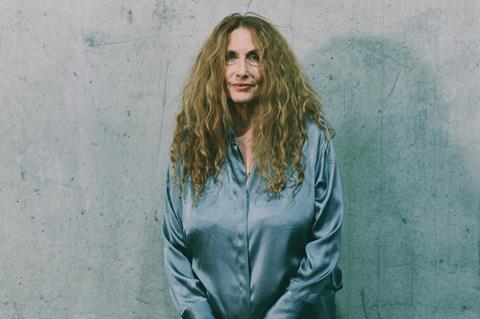
Norwegian director Vibeke Løkkeberg is in Berlin with her Forum feature documentary The Long Road To The Director’s Chair, over 50 years after she starting filming it at the first International Women’s Film Seminar in West Berlin in 1973.
The event at the Arsenal cinema theatre is now regarded as a key staging post in the origins of the feminist movement. Female participants, all working in different sectors of the media, were fiercely critical of the rampant sexism in the film and newspaper industries.
At the time the project was turned down flat by the national broadcaster. Now it is being turned into a television series.
“I just screened 15 minutes for state television,” said Løkkeberg of her original approach to the broadcaster. ”When they saw it, they immediately refused to [fund it] and I didn’t get any money or funding anywhere else. They felt criticised. They punish you if you do that.”
The footage disappeared into the archives and Løkkeberg went on to make many other documentaries, including 2011 title Tears Of Gaza, which screened widely at international festivals.
However, the 1973 seminar came back into her life when the footage was rediscovered by archivists in Norway’s national library. Leading Norwegian producer Anders Tangen came on board to pull it all together, produce through Viafilm, and raise funding from the Free Word Foundation and Norwegian Film Institute.
The Long Road To The Director’s Chair is 70 minutes long but Tangen has revealed Løkkeberg originally shot 210 minutes of material that he is now turning into a TV series on the subject.
“We are sitting on a goldmine of material that we can use for a multi-part series of 30-minute episodes, allowing us to dig deeper and shine light on other topics,” said Tangen. He has brought a crew to Berlin to film fresh footage including material from the Forum premiere, which was attended by many of the women who featured in the 1973 discussions.
Many of the women Løkkeberg interviewed in 1973 have gone on to have significant media careers. They included: German journalist Alice Schwarzer, founder and publisher of feminist journal EMMA; German-American director and screenwriter Karin Howard; French filmmaker Nurith Aviv; German feminist filmmaker Helke Sander; filmmaker Ariel Maria Dougherty, co-founder of Women Make Movies; journalist and author Valeska von Roques; and filmmaker and author Claudia von Alemann.
But Løkkeberg did not believe they have been paid anywhere near as much as their male counterparts over their working lives. This also applied to the director herself.
“Each movie I have made, I produced myself. Each time I have to invest my own salary in the movie,” she said. “You never earn enough money to have a solid pension. These women that you see here [in the documentary], they are still poor.”
In Berlin this year Løkkeberg has closed the circle and taken part in a moderated conversation addressing 50 years of gender imbalance organised by The Federation of European Screen Directors (FERA) in association with EFAD (European Film Agencies).

























No comments yet